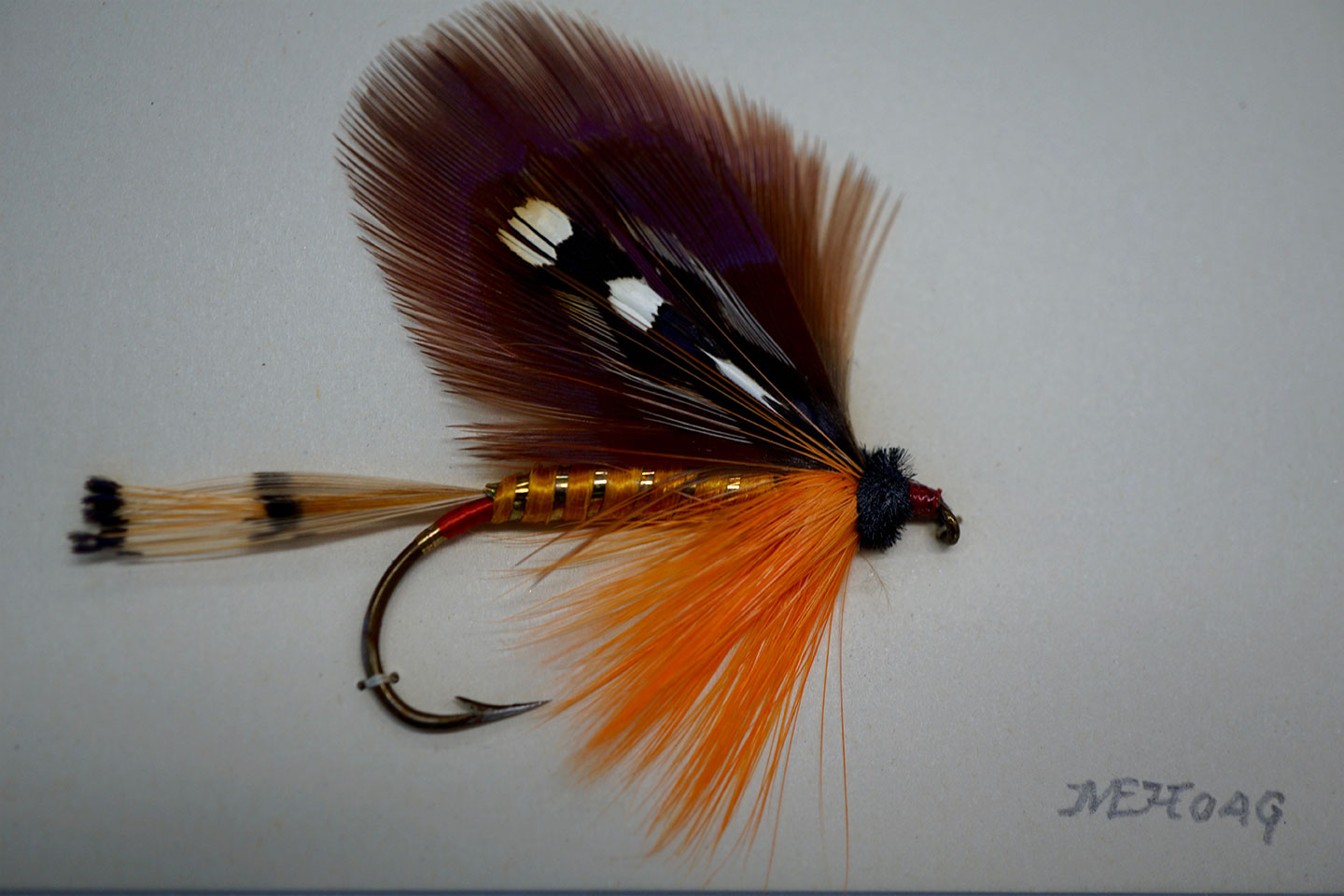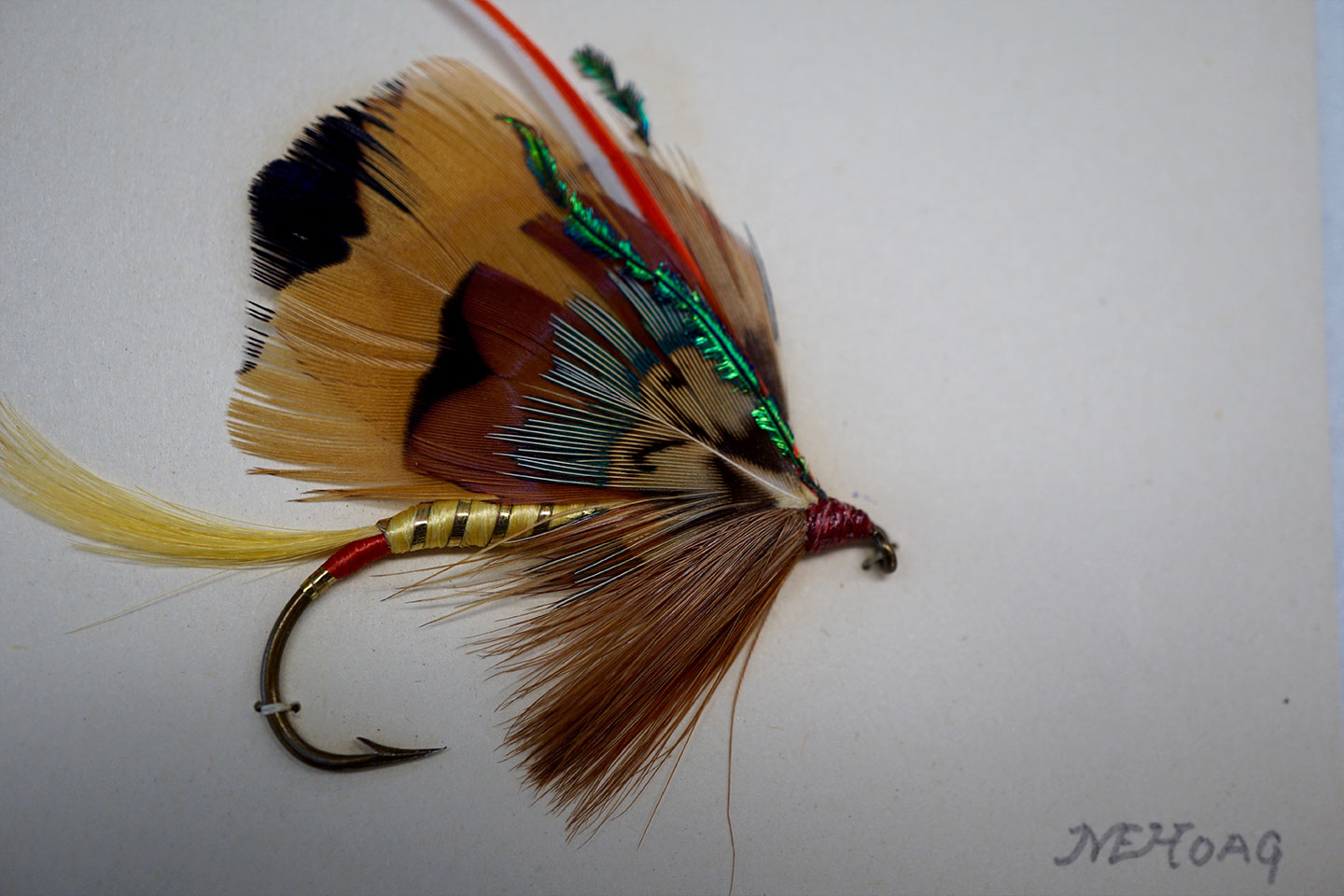The Wonders Of Fly Fishing
Immerse yourself in The Wonders of Fly Fishing and experience the evolution of our sport from the early American masters H.L. Leonard, and Charles Orvis to the rod and reel makers and fly tiers of today. A step into the Leigh H. Perkins Gallery will bring you back in time and remind you of the reasons you picked up a fly rod for the very first time.
Mary Orvis Marbury Panels
In preparation for the 1893 Chicago World’s Fair, Mary Orvis Marbury (1856-1914 daughter of Charles F. Orvis (1831-1915), compiled and created hinged wood panels to represent the Manchester, Vermont-based outdoor equipment company, C.F. Orvis Company. Each panel featured flies tied at the company’s shop paired with stunning black-and-white photographs of well-known 19th century fly-fishing locations in the United States and Canada. While conducting research for Field & Stream magazine in 1963, Hermann Kessler found these panels in an attic space above The Orvis Company’s rod factory. Kessler recognized the historical significance of the panels and later approached Leigh Perkins concerning the establishment of a fly fishing museum. This idea led to the founding of the American Museum of Fly Fishing.
The Presidents Collection
Fly fishing has always been a presidential sport, at least in the good old days. Presidents took more time off, sometimes up to three months, so the opportunity was there for them to enjoy some quiet days on the river where the biggest problem they encountered was deciding between a size 14 or 16 dry fly.
Fishing seems to be one of the few avenues left to Presidents through which they may escape to their own thoughts, may live in their own imaginings, find relief from the pneumatic hammer of constant personal contacts, and refreshment of mind in rippling waters. Moreover, it is a constant reminder of the democracy of life, of humility and of human frailty. It is desirable that the President of the United States should be periodically reminded of this fundamental fact — that the forces of nature discriminate for no man. – Herbert Hoover











